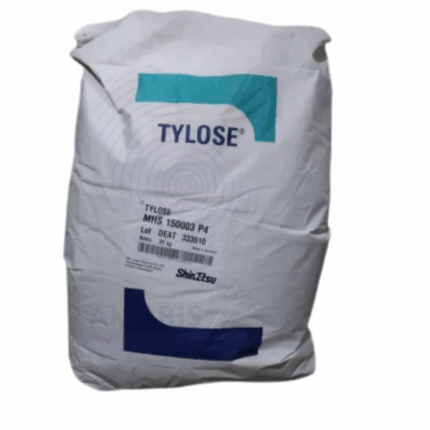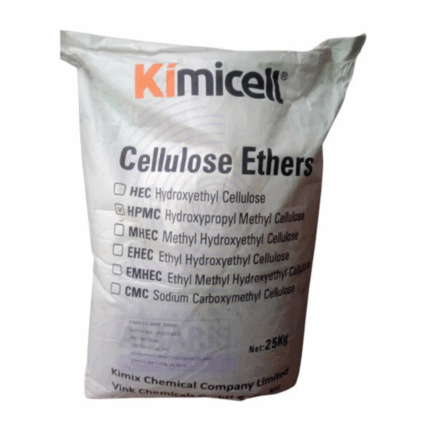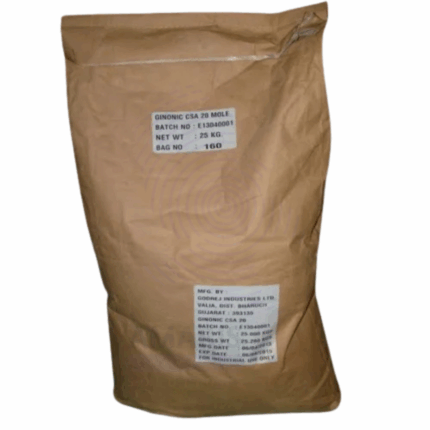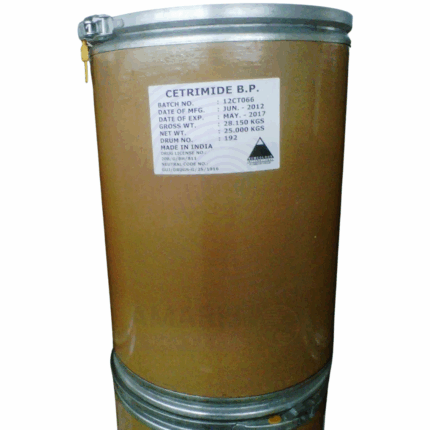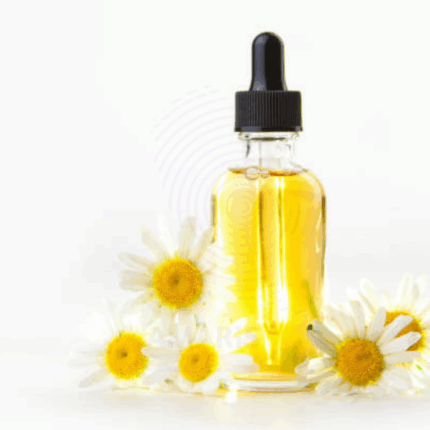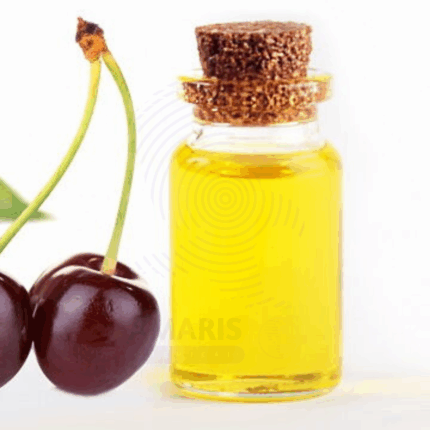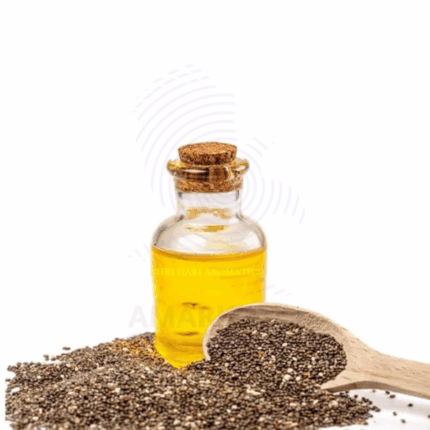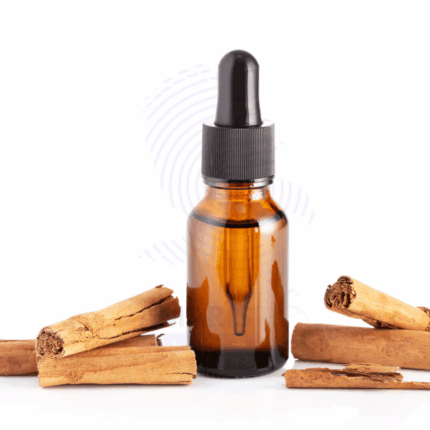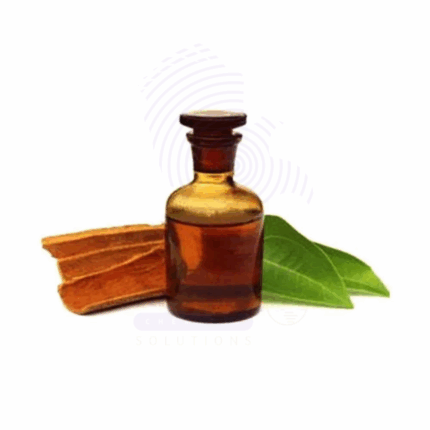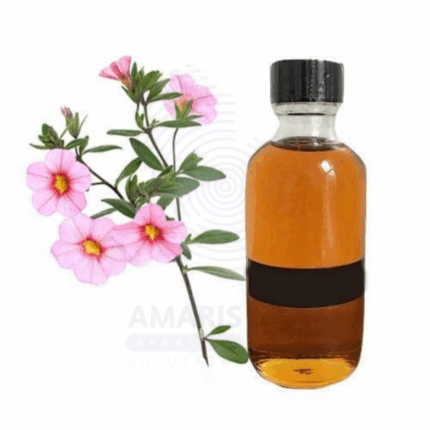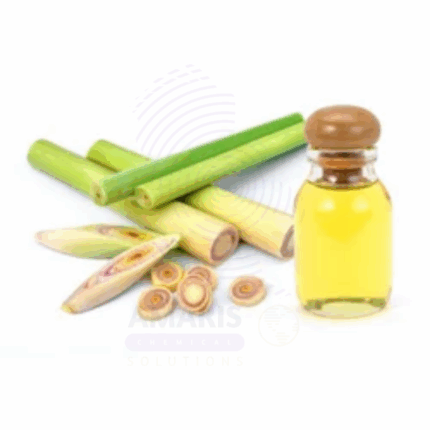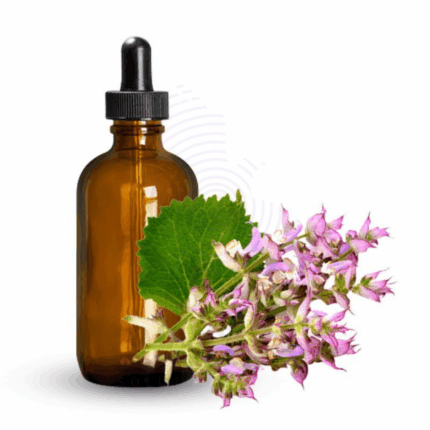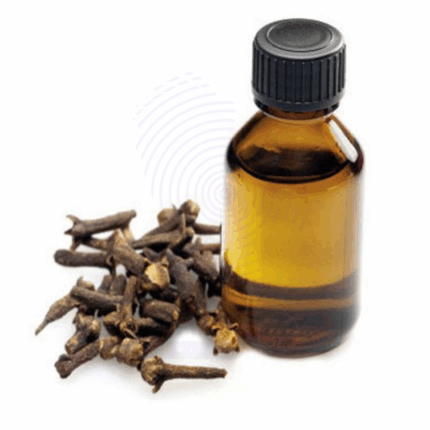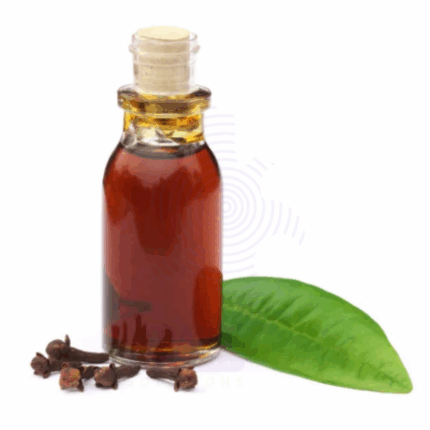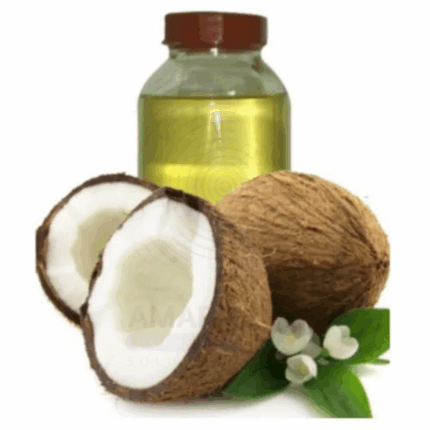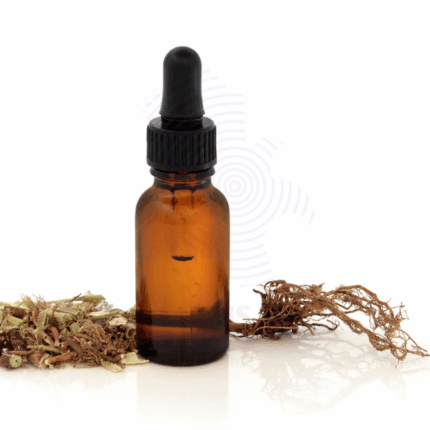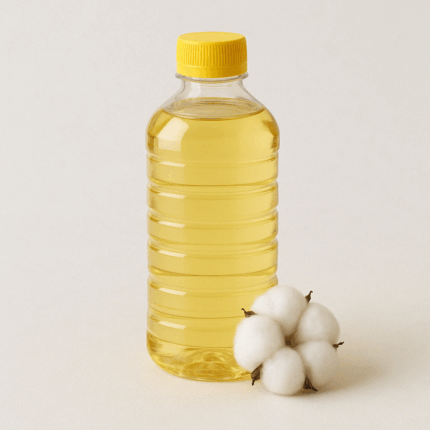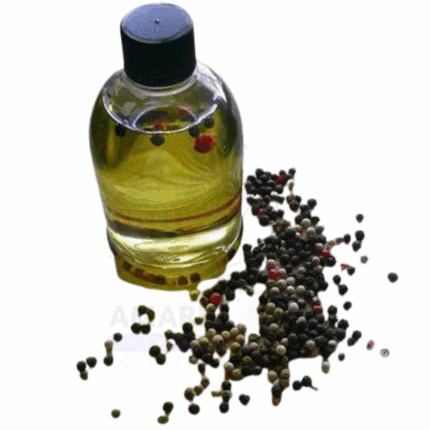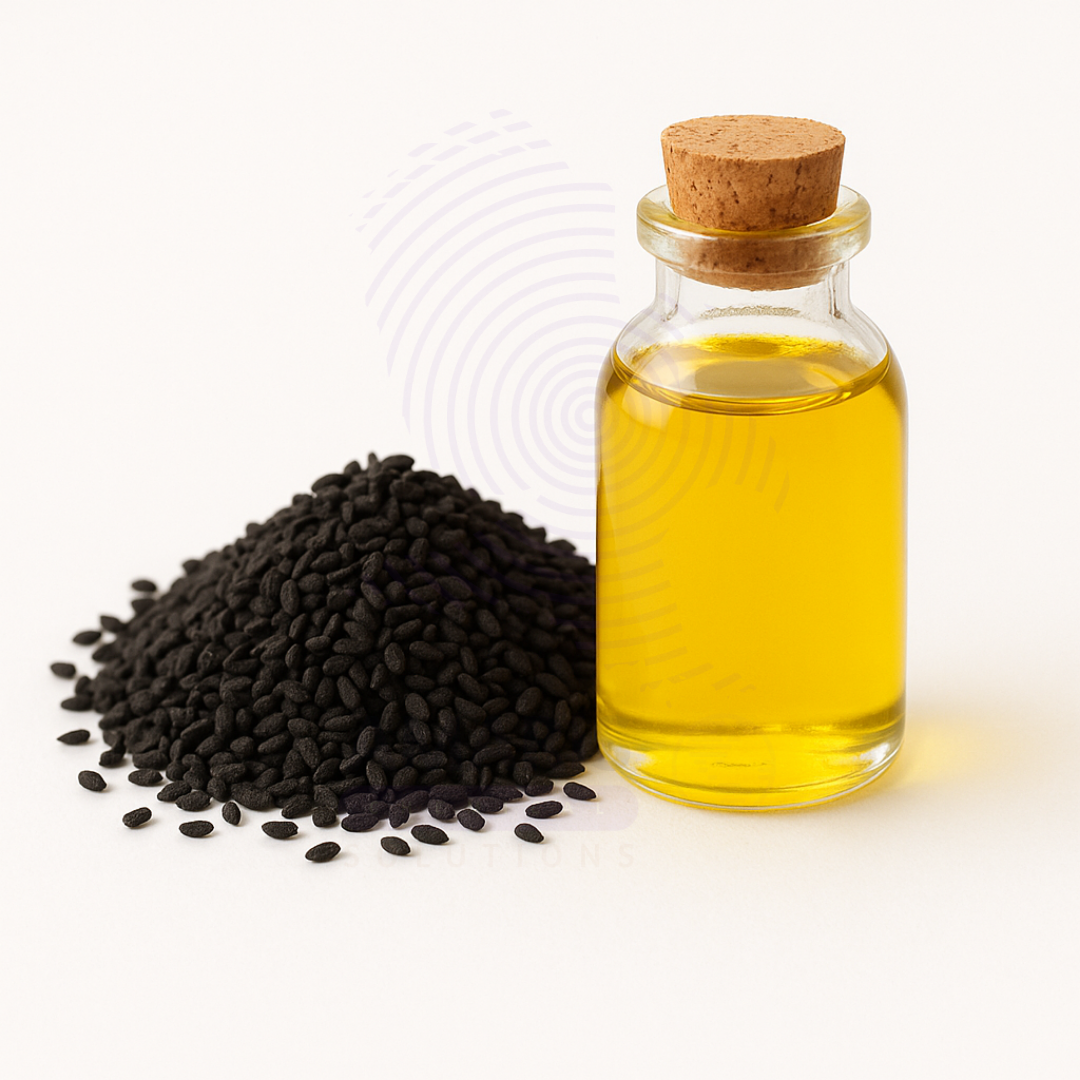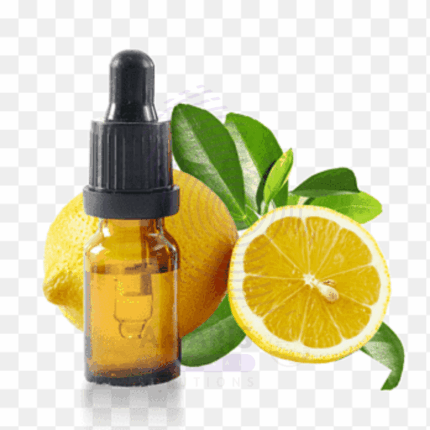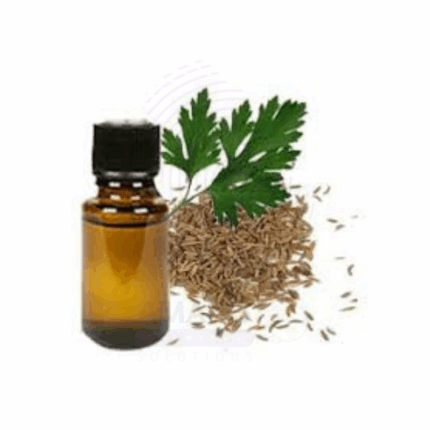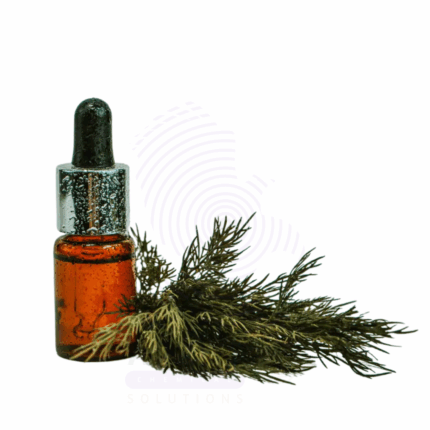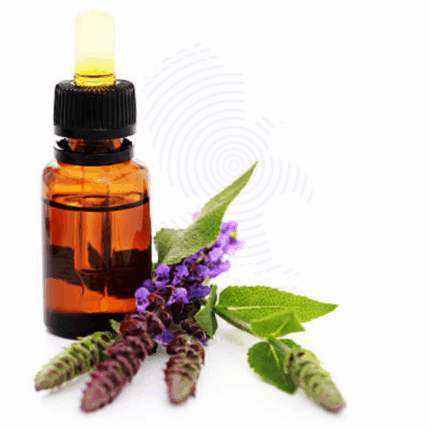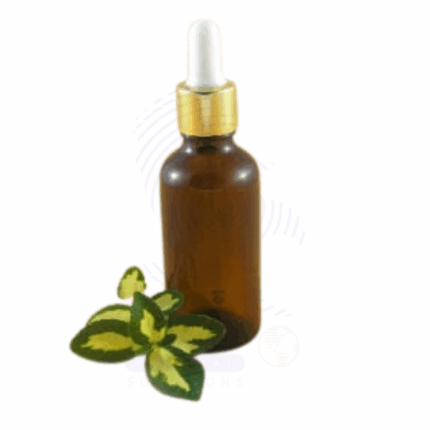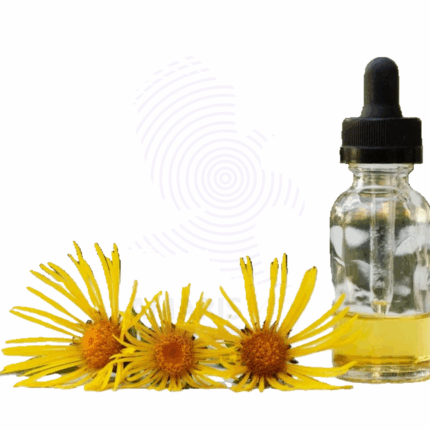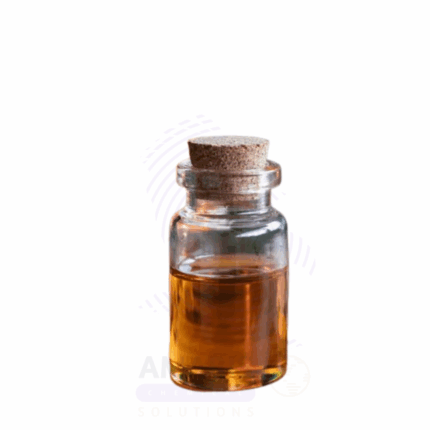Cellozize Tylose
Cellozize Tylose, commonly known by the trade name Tylose, is a brand of hydroxyethyl cellulose (HEC), a non-ionic, water-soluble cellulose ether derived from natural cellulose. It appears as a white to off-white powder with excellent thickening, binding, and film-forming properties. Tylose is widely used as a rheology modifier, stabilizer, and thickener in various industries including construction, pharmaceuticals, cosmetics, and food. It provides viscosity control, improves texture, and enhances water retention in formulations. Due to its inert, non-toxic, and biodegradable nature, Tylose is favored as a versatile polymer in many applications.
Cellulose Acetate Phthalate (CAP)
Cellulose Acetate Phthalate (CAP) is a cellulose derivative obtained by esterification of cellulose with acetic acid and phthalic anhydride. It appears as a white to off-white, free-flowing powder that is insoluble in water but soluble in alkaline solutions and certain organic solvents. CAP is primarily used as an enteric coating agent in pharmaceutical formulations, providing resistance to acidic gastric fluids and enabling targeted release of drugs in the intestines. Due to its film-forming, pH-sensitive solubility, and protective properties, CAP is also applied in food, cosmetics, and specialty industrial uses.
Cellulose Ether
Cellulose ether refers to a group of chemically modified cellulose derivatives where hydroxyl groups on the cellulose backbone are substituted with ether groups such as methyl, hydroxyethyl, or carboxymethyl groups. These modifications improve solubility, viscosity, and film-forming properties while maintaining biodegradability and non-toxicity. Cellulose ethers are white to off-white powders or granules that dissolve in water to form viscous, stable solutions. They are widely used as thickeners, binders, stabilizers, and film formers in industries such as construction, pharmaceuticals, cosmetics, food, and paper.
Cetomacrogel 1000BP
Cetomacrogel 1000BP is a high molecular weight polyethylene glycol (PEG) derivative, typically used as a thickening agent, emulsifier, and stabilizer in pharmaceutical and cosmetic formulations. It appears as a white to off-white, waxy solid or flakes with a neutral odor. Known for its excellent water solubility and compatibility with various ingredients, Cetomacrogel 1000BP enhances texture, viscosity, and stability in creams, ointments, and gels. It serves as a hydrophilic vehicle base in topical and oral pharmaceutical preparations and improves product spreadability and skin feel.
Cetrimide Powder
Cetrimide Powder is a high-purity quaternary ammonium compound widely used for its antiseptic, disinfectant, and surfactant properties. It is a cationic surfactant derived from cetyltrimethylammonium bromide and appears as a white to off-white crystalline powder with a slight characteristic odor. Known for its excellent antimicrobial efficacy against bacteria and fungi, cetrimide is frequently incorporated in pharmaceutical, personal care, and industrial formulations. It acts as a bactericidal agent, detergent, and emulsifier, providing effective cleaning and disinfecting action.
Cetyl Alcohol
Cetyl Alcohol, also known as 1-Hexadecanol or Palmityl Alcohol, is a fatty alcohol derived primarily from natural sources such as palm oil and coconut oil. It appears as a waxy, white to pale yellow solid with a faint fatty odor. Cetyl Alcohol is widely used in cosmetic, pharmaceutical, and industrial formulations due to its emollient, emulsifying, thickening, and stabilizing properties. It helps improve texture, consistency, and moisturizing effects in personal care products. Cetyl Alcohol is compatible with many ingredients, making it a versatile multifunctional ingredient.
Cetyl Alcohol 98% Flakes
Cetyl Alcohol Flakes is a high-purity fatty alcohol derived mainly from natural sources such as palm oil and coconut oil. Presented as white to off-white waxy flakes, this product contains at least 98% pure cetyl alcohol, ensuring consistent performance and quality. It is valued for its excellent emollient, thickening, and emulsifying properties and is widely used in personal care, pharmaceutical, and industrial formulations. The flake form facilitates easy handling, melting, and dosing in manufacturing processes. Cetyl Alcohol 98% Flakes contributes to the texture, stability, and moisturizing properties of various formulations, providing a non-greasy, smooth finish.
Chamomile Oil
Chamomile Oil is a highly valued essential oil extracted from the flowers of the Matricaria chamomilla (German Chamomile) or Chamaemelum nobile (Roman Chamomile) through steam distillation or solvent extraction. Renowned for its calming, anti-inflammatory, and soothing properties, Chamomile Oil exhibits a sweet, fruity, herbaceous aroma with apple-like undertones. It is widely used in aromatherapy, cosmetics, pharmaceuticals, and natural wellness products. This oil supports skin health, reduces stress, and provides relief from various inflammatory conditions, making it a cornerstone in holistic health and beauty formulations.
Cherry Kernel Oil
Cherry Kernel Oil, extracted from the seeds of sweet cherries (Prunus avium), is a lightweight, golden-yellow carrier oil with a mild, nutty aroma. This oil is produced through cold pressing of cherry kernels and is rich in oleic and linoleic acids, along with naturally occurring tocopherols (Vitamin E) and phytosterols. Known for its excellent emollient, antioxidant, and regenerative properties, it absorbs quickly and nourishes the skin without leaving a greasy residue.
It is widely used in skin care, hair care, baby products, and aromatherapy. Its gentle nature makes it suitable for sensitive and mature skin, while its light texture and stability make it a favored base oil in cosmetic formulations, massage blends, and eco-conscious personal care lines.
Chia Oil
Chia Oil is a cold-pressed, nutrient-rich oil derived from the seeds of the Salvia hispanica plant, native to Central and South America. This light, fast-absorbing oil is celebrated for its exceptionally high content of omega-3 fatty acids (especially alpha-linolenic acid), antioxidants, vitamins, and phytonutrients. It has a mild, nutty aroma and is typically golden in color.
Due to its powerful antioxidant and anti-inflammatory properties, Chia Oil is used extensively in cosmetics, personal care, nutraceuticals, and food products. It helps support skin barrier function, reduce redness, and improve skin elasticity and hydration. In food and dietary supplements, it’s valued for its cardiovascular, brain, and skin health benefits.
Chlorhexidine Digluconate
Chlorhexidine Digluconate is a concentrated aqueous solution of chlorhexidine salt (digluconate form), a potent broad-spectrum antimicrobial agent. It is a clear to slightly yellow viscous liquid with a mild characteristic odor. This antiseptic and disinfectant is widely used in medical, personal care, and industrial applications for its ability to effectively kill bacteria, fungi, and some viruses by disrupting microbial cell membranes. Chlorhexidine Digluconate is valued for its residual antimicrobial activity, low toxicity, and compatibility with various formulations.
Chloroform
Chloroform (Trichloromethane) is a clear, colorless, volatile liquid with a sweet, pleasant odor. It is a widely used organic solvent with excellent solvency for many substances. Historically employed as an anesthetic, chloroform is now primarily used in laboratories and industry for extraction, degreasing, and chemical synthesis. It has moderate volatility and is heavier than air, requiring careful handling to avoid inhalation hazards. Its chemical stability and ability to dissolve fats, alkaloids, and other substances make it valuable in pharmaceutical, chemical, and industrial processes.
Cinnamon Leaf Oil
Cinnamon Leaf Oil is an essential oil obtained by steam distillation of the leaves of the Cinnamomum zeylanicum or Cinnamomum verum tree. It has a warm, spicy, and slightly sweet aroma, distinct from cinnamon bark oil, with high levels of eugenol. This oil is prized for its antimicrobial, antioxidant, and analgesic properties. It is widely used in perfumery, aromatherapy, personal care, and natural medicine.
Used traditionally for respiratory relief, oral health, and topical analgesia, cinnamon leaf oil is now integrated into natural formulations for skincare, oral hygiene, massage, and household cleaning products. Its invigorating scent and therapeutic versatility make it valuable across cosmetic, pharmaceutical, and cleaning industries.
Cistus Oil
Cistus Oil, also known as Rock Rose Oil, is an aromatic essential oil derived from the resinous leaves and stems of the Cistus ladanifer or Cistus creticus plant through steam distillation. It has a warm, sweet, herbaceous scent with amber and balsamic undertones. This oil is highly valued for its grounding aroma and its historical use in wound healing, skin care, and emotional balancing.
Traditionally used in Mediterranean herbal practices, Cistus Oil is rich in monoterpenes and sesquiterpenes that offer antioxidant, antimicrobial, and skin-regenerating properties. It is widely utilized in natural perfumery, skin care formulations, wellness blends, and spiritual or meditative rituals.
Citric Acid Anhydrous
Citric Acid Anhydrous is a white, crystalline organic acid widely used across food, pharmaceutical, cosmetic, and industrial sectors. It is the anhydrous form of citric acid, meaning it contains no water molecules in its crystal lattice, resulting in higher purity and more concentrated acidic properties compared to its monohydrate form. Derived from natural sources like citrus fruits or produced via microbial fermentation, citric acid anhydrous is valued for its sour taste, excellent chelating ability, and buffering capacity. It serves as a natural preservative, pH adjuster, antioxidant synergist, and cleaning agent, making it a versatile ingredient in many formulations.
Citric Acid Monohydrate
Citric Acid Monohydrate is a white, crystalline powder or granule form of citric acid containing one molecule of water per molecule of acid. It is a natural organic acid commonly derived from citrus fruits or produced by fermentation processes. Citric Acid Monohydrate is widely used as an acidulant, preservative, and chelating agent in various industries. Compared to the anhydrous form, it has a slightly lower acid concentration due to the water molecule but offers excellent solubility and stability. It is prized for its sour flavor, buffering capacity, and ability to bind metal ions, making it indispensable in food, pharmaceutical, cosmetic, and industrial applications.
Citronella Oil
Citronella Oil is an essential oil obtained from the leaves and stems of various species of Cymbopogon grass, most commonly Cymbopogon nardus and Cymbopogon winterianus. It is extracted via steam distillation and is known for its fresh, lemony aroma. Citronella Oil is widely recognized for its insect-repelling properties, as well as its use in perfumery, aromatherapy, and natural cleaning products.
Rich in citronellal, geraniol, and citronellol, this oil is highly valued for its antimicrobial, antifungal, and deodorizing effects. It plays a significant role in personal care formulations, environmental hygiene products, and therapeutic applications.
Clary Sage Oil
Clary Sage Oil is a high-grade essential oil obtained through steam distillation of the flowering tops and leaves of Salvia sclarea, a perennial herb native to the Mediterranean region. It is known for its sweet, herbaceous, tea-like, and slightly floral aroma, with a high content of linalyl acetate, linalool, and sclareol. These compounds contribute to its antispasmodic, sedative, hormone-balancing, and antimicrobial properties.
This oil is widely valued in aromatherapy, cosmetics, perfumery, and wellness applications. It is particularly renowned for supporting women’s health, relieving stress, improving skin tone, and promoting emotional well-being. Clary Sage Oil is a key ingredient in holistic health and self-care routines and is frequently used in natural fragrance and therapeutic formulations.
Clove Bud Oil
Clove Bud Oil is a potent essential oil obtained through steam distillation of the flower buds of the Syzygium aromaticum (formerly Eugenia caryophyllata) tree. Renowned for its strong, spicy, and warm aroma, it is rich in eugenol — a powerful natural compound with significant antiseptic, analgesic, and antimicrobial properties.
Used historically in dental care, traditional medicine, and perfumery, Clove Bud Oil is now widely applied in cosmetics, oral care, food flavoring, wellness, and natural cleaning products. It is also valued in aromatherapy for its grounding and energizing effects.
Clove Leaf Oil
Clove Leaf Oil is a high-phenol essential oil extracted via steam distillation from the leaves of Syzygium aromaticum (formerly Eugenia caryophyllata). It typically contains up to 80–85% eugenol, which gives it a sharper, more herbaceous aroma than clove bud oil. This oil is prized for its potent antiseptic, analgesic, antifungal, and antioxidant properties. Used in oral care, topical formulations, fragrances, cleaning agents, and agricultural applications, it is valued for both its therapeutic efficacy and aromatic profile.
Coconut Oil Refined
Coconut Oil Refined is a purified oil extracted from dried coconut meat (copra) that undergoes refining, bleaching, and deodorizing (RBD) to remove impurities, odor, and flavor. The resulting oil is clear, colorless to pale yellow, with a neutral scent and a high smoke point, making it suitable for diverse applications. It is rich in medium-chain triglycerides (MCTs) that offer moisturizing, antimicrobial, and emollient properties. Refined Coconut Oil is widely used in cosmetic formulations, pharmaceutical excipients, food products, and cleaning agents for its versatility, stability, and skin-friendly characteristics.
Corn Oil
Corn Oil is a versatile, plant-based oil extracted from the germ of corn kernels (Zea mays) through mechanical pressing and solvent extraction, followed by refining. It is light yellow in color with a mild, neutral scent and a high smoke point, making it suitable for culinary, industrial, cosmetic, and pharmaceutical applications. Rich in polyunsaturated fatty acids, especially linoleic acid, and vitamin E, corn oil is valued for its emollient, antioxidant, and cholesterol-lowering properties.
Commonly used as a cooking and frying oil, it is also widely incorporated into margarine, salad dressings, and processed foods. In cosmetics, it functions as a skin-conditioning agent and emollient. Corn oil further finds use in pharmaceutical formulations, biofuel production, and industrial lubricants.
Costus Oil
Costus Oil is a rare essential oil derived from the steam-distilled roots of Saussurea costus (also known as Saussurea lappa), a Himalayan herb long valued in traditional systems such as Ayurveda, Unani, and Chinese medicine. The oil has a deep amber to brown color and a rich, earthy, woody, and musky aroma. It is well-known in perfumery as a natural fixative and is widely used in spiritual rituals, incense making, high-end fragrances, and therapeutic blends.
Due to its grounding scent and potential anti-inflammatory, antimicrobial, and calming properties, Costus Oil is incorporated into personal care, topical formulations, and aromatherapy. It is a powerful aromatic oil that must be used in moderation and diluted due to its strong sensitizing compounds.
Cotton Seed Oil
Cotton Seed Oil is a light, odorless, vegetable oil extracted from the seeds of the cotton plant (Gossypium hirsutum and Gossypium herbaceum) through solvent extraction and refining processes. It is pale yellow with a neutral flavor, making it ideal for culinary, cosmetic, and industrial applications. Rich in polyunsaturated fatty acids, tocopherols, and antioxidants, Cotton Seed Oil is valued for its stability and high smoke point in cooking, as well as its emollient and conditioning properties in skin and hair care products.
In cosmetic formulations, it helps soften, nourish, and protect skin and hair, while in food production, it is used in frying oils, dressings, and snacks. Industrially, it finds applications in biodiesel production and soap manufacturing.
Cubeb Oil
Cubeb Oil is an essential oil steam-distilled from the dried berries of Piper cubeba, a plant native to Java and parts of Southeast Asia. With a warm, spicy, woody, and slightly camphoraceous aroma, Cubeb Oil is rich in sesquiterpenes and monoterpenes such as sabinene, cubebene, and caryophyllene. It has traditionally been used in herbal medicine for respiratory and urinary support and in perfumery for its distinctive spicy-woody scent.
In modern formulations, Cubeb Oil is valued for its antimicrobial, anti-inflammatory, and stimulating properties. It is commonly used in natural perfumery, masculine fragrances, therapeutic massage blends, and respiratory wellness products.
Cumin Seed Oil
Cumin Seed Oil is an essential oil obtained through steam distillation of the dried seeds of Cuminum cyminum, a herbaceous plant from the Apiaceae family. Known for its warm, spicy, earthy, and nutty aroma, cumin seed oil is rich in bioactive compounds like cuminaldehyde, cymene, and terpenes. It is traditionally used in Ayurvedic and Unani medicine for digestive, respiratory, and antimicrobial support.
In modern applications, cumin seed oil is valued for its antioxidant, antiseptic, and digestive-stimulating properties. It is used across cosmetic formulations, therapeutic massage products, aromatherapy blends, and flavoring applications.
Cypress Oil
Cypress Oil is an essential oil obtained by steam distillation of the needles, twigs, and cones of the Cupressus sempervirens tree. Known for its clean, woody, slightly spicy, and balsamic aroma, this oil contains key constituents such as alpha-pinene, delta-3-carene, and cedrol. It has been traditionally used for its astringent, anti-inflammatory, antiseptic, and decongestant properties.
Cypress Oil is widely used in aromatherapy, skincare, respiratory blends, muscle-relief products, and emotional wellness formulas. It is also found in perfumes, deodorants, and spa treatments for its grounding, fresh, and uplifting scent.
D-Limonene Oil
D-Limonene Oil is a naturally occurring monoterpene hydrocarbon extracted primarily from the rinds of citrus fruits, especially oranges and lemons. It is obtained through cold pressing or steam distillation of citrus peels and purified through fractional distillation. Known for its fresh, sweet, and zesty orange-like aroma, D-Limonene is widely used across multiple industries for its solvent properties, fragrance, and therapeutic benefits.
This oil is valued for its degreasing power, anti-inflammatory effects, and uplifting scent. It plays a vital role in cosmetics, cleaning formulations, pharmaceuticals, and food products, either as a solvent, active ingredient, or fragrance compound.
D-Panthenol USP
D-Panthenol USP, also known as Provitamin B5, is the dextrorotatory isomer of panthenol and is biologically active. It is a water-soluble, viscous, clear liquid with a slightly sweet odor and is widely used in pharmaceutical, cosmetic, personal care, and nutraceutical applications. D-Panthenol is the alcohol analog of pantothenic acid (Vitamin B5) and is converted into Vitamin B5 in the skin and body, where it plays a vital role in cellular metabolism and tissue repair. Its moisturizing, anti-inflammatory, and healing properties make it highly valuable across industries.
Davana Oil
Davana Oil is a premium essential oil derived from the flowering tops of the Artemisia pallens plant through steam distillation. Native to southern India, Davana is a highly aromatic herb traditionally used in Ayurvedic practices and religious rituals. The oil features a sweet, fruity, herbaceous aroma with subtle balsamic undertones, and it is known for its adaptogenic, antimicrobial, and mood-balancing properties.
This exotic oil is widely used in high-end perfumery for its unique scent that adapts slightly to each individual's skin chemistry. It also finds applications in skincare, aromatherapy, pharmaceuticals, and natural remedies. Its complex chemical profile makes it valuable for both therapeutic and olfactory formulations.
Defoamer M37
Defoamer is a high-performance, silicone-based antifoaming agent designed to eliminate and prevent foam formation in aqueous and non-aqueous systems. It is typically a milky-white or translucent emulsion composed of modified polydimethylsiloxane, hydrophobic silica, and proprietary surfactants or emulsifiers. Defoamer is known for its immediate foam knockdown, long-lasting suppression, and compatibility across diverse formulations. It is widely used in industrial processes, coatings, adhesives, water treatment, textiles, and more. It is effective at low concentrations, thermally stable, and resistant to shear and pH fluctuations.
Deionized Water
Deionized Water (DI Water), also known as demineralized water, is highly purified water that has had almost all of its mineral ions (such as sodium, calcium, iron, copper, chloride, and sulfate) removed through ion exchange, reverse osmosis, or other purification methods. It is a clear, colorless, odorless liquid with extremely low electrical conductivity and is considered chemically pure. Deionized water is used in applications where water purity is critical, including pharmaceuticals, electronics, cosmetics, laboratory use, and various industrial processes. Its lack of minerals makes it highly reactive with contaminants, which makes it both useful and sensitive in technical applications.
Desgel HG (Carbomer)
Desgel HG is a high-purity Carbomer-based thickening agent, widely used in pharmaceutical, cosmetic, and personal care formulations. It is a cross-linked polyacrylic acid polymer, neutralized to form high-viscosity gels with excellent clarity and stability. Desgel HG is prized for its thickening, suspending, emulsifying, and stabilizing capabilities, especially in aqueous and hydroalcoholic systems. It is highly efficient at low concentrations and compatible with a wide pH range (when neutralized). This makes it ideal for use in gels, creams, lotions, hand sanitizers, topical formulations, and other semi-solid systems.
Diammonium Phosphate (DAP)
Diammonium Phosphate (DAP) is a highly water-soluble, white crystalline fertilizer containing nitrogen and phosphorus. It is one of the most widely used phosphate fertilizers globally, providing a balanced source of nutrients essential for plant growth. DAP supplies ammonium nitrogen (NH₄⁺) and phosphate (PO₄³⁻), which promote vigorous root development, improve soil fertility, and enhance crop yield and quality. Besides agriculture, DAP serves important roles in food additives, fire retardants, and industrial applications. It’s favored for its high nutrient content, ease of application, and compatibility with other fertilizers and soil amendments.
Dichlorophene Technical
Dichlorophene (also known as 2,2'-Methylenebis(4-chlorophenol)) is a chlorinated phenolic compound used primarily as an antimicrobial agent and disinfectant. It appears as a white to pale yellow crystalline powder with a characteristic phenolic odor. Known for its potent bactericidal and fungicidal properties, Dichlorophene is widely used in pharmaceutical formulations, personal care products, and industrial disinfectants. The “Technical” grade refers to its industrial or bulk purity form used as a raw material in manufacturing.
Dill Herb Oil
Dill Herb Oil is a steam-distilled essential oil extracted from the fresh or partially dried herbaceous parts of the Anethum graveolens plant, commonly known as dill. Unlike dill seed oil, which is distilled from the seeds, dill herb oil has a lighter, fresher, and slightly grassy aroma with a faint sweetness and subtle spicy undertones. It is valued for its carminative, digestive, antispasmodic, antimicrobial, and calming properties.
This oil is traditionally used in digestive remedies, culinary formulations, aromatherapy blends, and topical preparations. It’s a common ingredient in natural health products, skincare, and child-friendly wellness products due to its mildness and effectiveness. Dill herb oil is also employed in food and beverage applications and niche perfumery for its green, aromatic character.
Dill Seed Oil
Dill Seed Oil is an essential oil derived through steam distillation of the dried seeds of the Anethum graveolens plant. Compared to dill herb oil, this variant carries a stronger, spicier, and more pungent aroma with prominent caraway-like notes due to its high carvone content. It is traditionally valued for its digestive, carminative, antispasmodic, and antimicrobial properties.
Dill Seed Oil finds wide application across the pharmaceutical, food and beverage, cosmetic, and aromatherapy sectors. It is also used in perfumery, oral care, pet care, and household cleaning products for its aromatic and therapeutic qualities.
Dill Seed Oil Terpeneless
Dill Seed Oil Terpeneless is a refined essential oil obtained by steam distillation of the seeds of Anethum graveolens, with terpenes removed to reduce its sharpness and volatility. It has a mild, sweet, herbaceous aroma with faint spicy undertones. This oil is prized for its improved stability, softer fragrance profile, and enhanced suitability in cosmetic, pharmaceutical, and cleaning applications. Traditionally used for digestive support and antimicrobial properties, dill seed oil terpeneless is incorporated in natural personal care products, aromatherapy, and household formulations.
Disodium EDTA 99%
Disodium EDTA (Ethylenediaminetetraacetic acid disodium salt) is a white, odorless, crystalline powder known for its strong chelating properties. With a purity of 99%, it is widely used across numerous industries to bind metal ions, improve stability, and enhance performance in formulations. Disodium EDTA is highly soluble in water, slightly acidic to neutral in solution, and stable under standard storage conditions. Its ability to sequester metal ions like calcium, magnesium, and iron makes it a critical additive in food, pharmaceuticals, cosmetics, water treatment, and industrial applications.
Echium Seed Oil
Echium Seed Oil is a cold-pressed oil extracted from the seeds of the Echium plantagineum, native to the Mediterranean region. It is rich in omega-3 (ALA), omega-6 (GLA), and omega-9 fatty acids, offering excellent skin conditioning and anti-inflammatory benefits. It is widely used in cosmetics, personal care, and natural therapeutic products for soothing irritated skin, enhancing skin barrier repair, and providing antioxidant protection.
EDTA Disodium Salt
EDTA Disodium Salt (Ethylenediaminetetraacetic acid disodium salt) is a widely used chelating agent that binds metal ions to form stable complexes. It effectively sequesters divalent and trivalent metal ions such as calcium, magnesium, iron, and heavy metals, preventing their participation in unwanted chemical reactions. This property makes it essential in a wide range of industrial, pharmaceutical, cosmetic, agricultural, and water treatment applications. The disodium salt form offers excellent water solubility and is often used in neutral to slightly alkaline systems.
Elderberry Seed Oil
Elderberry Seed Oil is a natural, cold-pressed oil extracted from the seeds of the Sambucus nigra plant. It is prized for its rich content of essential fatty acids, antioxidants, and vitamins, offering nourishing and rejuvenating benefits for skin and hair. This lightweight oil absorbs quickly and is valued for its moisturizing, anti-inflammatory, and anti-aging properties. Elderberry Seed Oil is commonly used in cosmetics, personal care, and therapeutic formulations.
Elecampane Oil
Elecampane Oil is an essential oil extracted by steam distillation from the roots of Inula helenium. It has a warm, sweet, balsamic, and slightly camphoraceous aroma. Traditionally valued for its expectorant, antimicrobial, and anti-inflammatory properties, Elecampane Oil is used in respiratory therapies, digestive health products, and topical applications. It is prized in aromatherapy and herbal medicine for supporting lung and skin health.
Elemi Oil
Elemi Oil is an essential oil extracted by steam distillation from the resin of the Canarium luzonicum tree. It has a fresh, lemony, spicy, and resinous aroma, valued for its calming and restorative properties. Elemi Oil is widely used in perfumery, aromatherapy, and skin care products, particularly for its reputed ability to promote skin regeneration and relieve respiratory issues.
Ellagic Acid
Ellagic Acid is a naturally occurring polyphenolic compound found in numerous fruits, nuts, and vegetables such as pomegranates, strawberries, raspberries, walnuts, and cranberries. It is a potent antioxidant known for its ability to scavenge free radicals and chelate metal ions. Due to its significant anti-inflammatory, anti-carcinogenic, and anti-viral properties, Ellagic Acid has gained extensive interest in pharmaceutical, nutraceutical, cosmetic, and food industries. It appears as a yellow to light brown crystalline powder, insoluble in water but soluble in organic solvents like ethanol and DMSO.
Emulsifier (Emulgator)
Emulsifier is a nonionic surfactant belonging to the family of Nonylphenol Ethoxylates (NPEs), specifically with an average of 9 ethylene oxide (EO) units. It is widely used as an effective emulsifying, wetting, dispersing, and solubilizing agent. NP-9 is typically a pale yellow to amber viscous liquid, soluble in water and various organic solvents. It is valued for its strong emulsifying ability to stabilize oil-in-water (O/W) and water-in-oil (W/O) emulsions, excellent detergency, and good compatibility with other surfactants and formulation ingredients. NP-9 is commonly employed in industrial, agricultural, cosmetic, pharmaceutical, and cleaning applications.


 Acidulants
Acidulants Antioxidants
Antioxidants Nutraceutical Ingredients (food)
Nutraceutical Ingredients (food)
 Collectors
Collectors Dust Suppressants
Dust Suppressants Explosives and Blasting Agents
Explosives and Blasting Agents Flocculants and Coagulants
Flocculants and Coagulants Frothers
Frothers Leaching Agents
Leaching Agents pH Modifiers
pH Modifiers Precious Metal Extraction Agents
Precious Metal Extraction Agents
 Antioxidants(plastic)
Antioxidants(plastic) Colorants (Pigments, Dyes)
Colorants (Pigments, Dyes) Fillers and Reinforcements
Fillers and Reinforcements Flame Retardants
Flame Retardants Monomers
Monomers Plasticizers
Plasticizers Polymerization Initiators
Polymerization Initiators Stabilizers (UV, Heat)
Stabilizers (UV, Heat)
 Antifoaming Agents
Antifoaming Agents Chelating Agents
Chelating Agents Coagulants and Flocculants
Coagulants and Flocculants Corrosion Inhibitors
Corrosion Inhibitors Disinfectants and Biocides
Disinfectants and Biocides Oxidizing Agents
Oxidizing Agents pH Adjusters
pH Adjusters Scale Inhibitors( water)
Scale Inhibitors( water)
 Antioxidants(cosmetic)
Antioxidants(cosmetic) Emollients
Emollients Fragrances and Essential Oils
Fragrances and Essential Oils Humectants
Humectants Preservatives
Preservatives Surfactants(cosmetic)
Surfactants(cosmetic) Thickeners
Thickeners UV Filters
UV Filters
 Fertilizers
Fertilizers Soil Conditioners
Soil Conditioners Plant Growth Regulators
Plant Growth Regulators Animal Feed Additives
Animal Feed Additives Biostimulants
Biostimulants Pesticides (Herbicides, Insecticides, Fungicides)
Pesticides (Herbicides, Insecticides, Fungicides)
 Active Pharmaceutical Ingredients (APIs)
Active Pharmaceutical Ingredients (APIs) Excipients
Excipients Solvents(pharmaceutical)
Solvents(pharmaceutical) Antibiotics
Antibiotics Antiseptics and Disinfectants
Antiseptics and Disinfectants Vaccine Adjuvants
Vaccine Adjuvants Nutraceutical Ingredients (pharmaceutical)
Nutraceutical Ingredients (pharmaceutical) Analgesics & Antipyretics
Analgesics & Antipyretics
 Analytical Reagents
Analytical Reagents Chromatography Chemicals
Chromatography Chemicals Spectroscopy Reagents
Spectroscopy Reagents Molecular Biology Reagents
Molecular Biology Reagents Biochemical Reagents
Biochemical Reagents Inorganic and Organic Standards
Inorganic and Organic Standards Laboratory Safety Chemicals
Laboratory Safety Chemicals Specialty Laboratory Chemicals(Special Laboratory Equipment)
Specialty Laboratory Chemicals(Special Laboratory Equipment)
 Demulsifiers
Demulsifiers Hydraulic Fracturing Fluids
Hydraulic Fracturing Fluids Scale Inhibitors(oil)
Scale Inhibitors(oil) Surfactants(oil)
Surfactants(oil) Drilling Fluids
Drilling Fluids
 Dyes and Pigments
Dyes and Pigments Bleaching Agents
Bleaching Agents Softening Agents
Softening Agents Finishing Agents
Finishing Agents Antistatic Agents
Antistatic Agents
 Admixtures
Admixtures Waterproofing Agents
Waterproofing Agents Sealants and Adhesives
Sealants and Adhesives Curing Compounds
Curing Compounds Concrete Repair Chemicals
Concrete Repair Chemicals Anti-Corrosion Coatings
Anti-Corrosion Coatings
 Surfactants(cleaning)
Surfactants(cleaning) Builders
Builders Enzymes
Enzymes Solvents (Cleaning)
Solvents (Cleaning) Fragrances
Fragrances
 Electronic Chemicals
Electronic Chemicals Catalysts
Catalysts Lubricants
Lubricants Photographic Chemicals
Photographic Chemicals Refrigerants
Refrigerants Automotive chemicals
Automotive chemicals Pyrotechnic Chemicals
Pyrotechnic Chemicals
 Biodegradable Surfactants
Biodegradable Surfactants Bio-based Solvents
Bio-based Solvents Renewable Polymers
Renewable Polymers Carbon Capture Chemicals
Carbon Capture Chemicals Wastewater Treatment Chemicals
Wastewater Treatment Chemicals
 Pigments
Pigments Solvents(paint)
Solvents(paint) Specialty Coatings
Specialty Coatings Binders/Resins
Binders/Resins Additives
Additives Driers
Driers Anti-Corrosion Agents
Anti-Corrosion Agents Functional Coatings
Functional Coatings Application-Specific Coatings
Application-Specific Coatings
 Fresh Herbs
Fresh Herbs Ground Spices
Ground Spices Whole Spices
Whole Spices Spice Blends
Spice Blends Dried Herbs
Dried Herbs
 Leavening Agents
Leavening Agents Dough Conditioners
Dough Conditioners Flour Treatments
Flour Treatments Fat Replacers
Fat Replacers Decoratives
Decoratives Preservatives(baking)
Preservatives(baking)
 Plasticizers & Softeners
Plasticizers & Softeners Reinforcing Agents
Reinforcing Agents Adhesion Promoters
Adhesion Promoters Vulcanizing Agents
Vulcanizing Agents Antidegradants
Antidegradants Blowing Agents
Blowing Agents Fillers & Extenders
Fillers & Extenders Accelerators & Retarders
Accelerators & Retarders

















